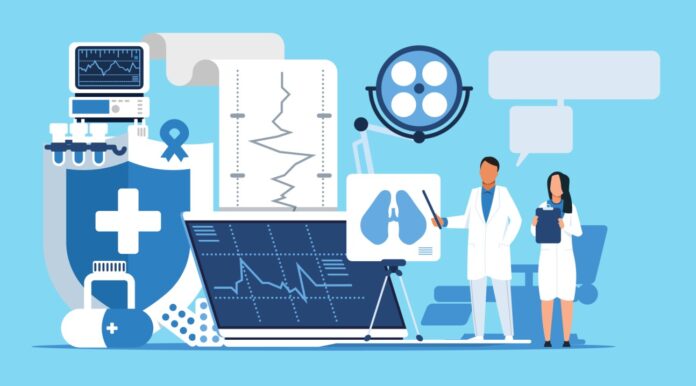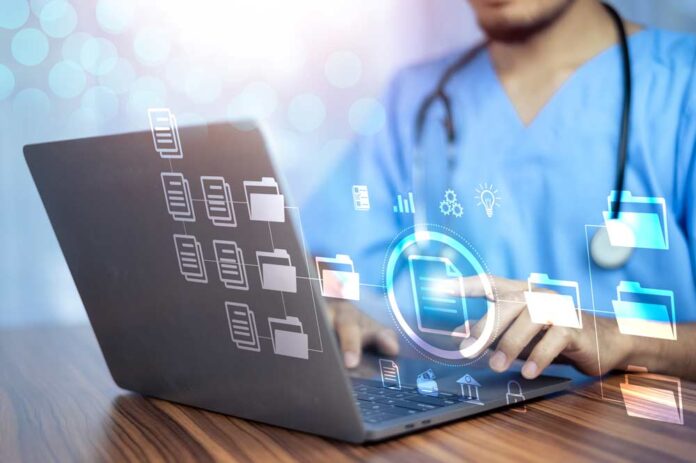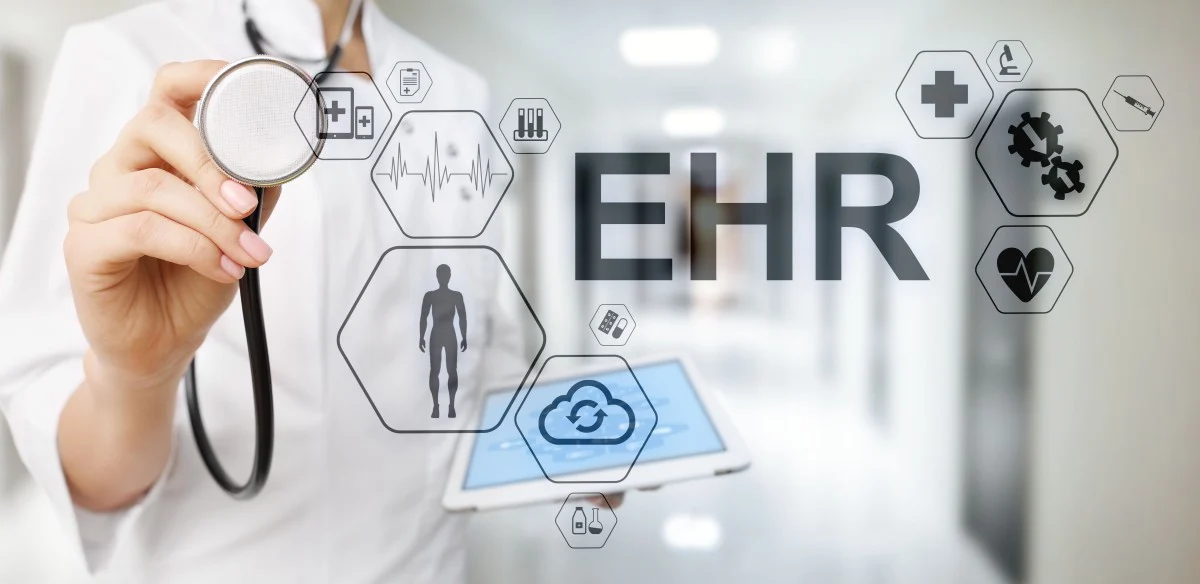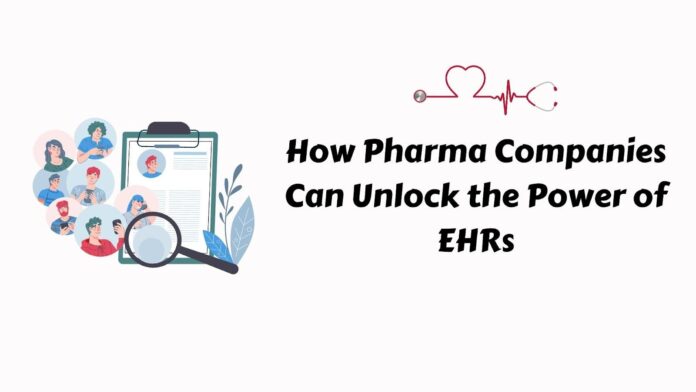Electronic Health Records (EHRs) contain a wealth of data that can empower pharmaceutical companies to enhance drug development and commercialization. Pharmaceutical companies can harness the power of EHR systems to gain valuable insights, enabling them to make smarter decisions throughout the drug lifecycle.
Let’s Understand Electronic Health Records (EHRs)

First things first, what are EHRs? Imagine your medical history, doctor visits, and test results all stored in one digital place. That’s an EHR! Instead of sifting through paper files, all your health information is neatly organized in a computer system.
The Human Side of Health Data
Now, let’s get personal. Think about the last time you went to the doctor. You probably sat in a cozy chair, maybe nervously tapping your foot. The doctor scribbled notes, asked questions, and maybe ordered some tests. All of that goes into your health record. But what if there’s a way to make this whole process smoother, not just for you but for everyone involved?
Connecting the Dots

Pharmaceutical companies can use EHR systems to connect the dots. Your health record becomes a puzzle, and each piece is essential. When all the pieces fit together, it helps doctors and researchers understand diseases better. This translates to discovering cures and treatments more quickly!
The Power of Sharing
Now, let’s talk about sharing. Remember those times when you had to repeat your medical history to different doctors? It’s like telling your favorite story over and over again. With EHRs, your story is shared digitally. It’s like passing a note in class, but way more important!
Faster and Smoother Treatment
When doctors can access your health info quickly, they can make better decisions about your treatment. Imagine you’re playing a video game, and you get a power-up. EHRs are like power-ups for doctors – they help them make the right moves to keep you healthy.
Breaking Down Barriers: Understanding Interoperability in Electronic Health Records (EHRs)

Let’s delve into a complex concept – interoperability. Imagine it as asking, “Can your game work on different consoles?” In the realm of healthcare, the EHR system aims to overcome barriers between various systems. Their goal is to ensure that your health information can be shared seamlessly and comprehended by everyone involved in your care.
Making it Simple: EHR Interoperability Unveiled
Think of your favorite playlist. What if you could listen to it on any device, wherever you go? That’s precisely what EHR interoperability achieves for your health data. It ensures that your information can be utilized across different ‘devices’ or healthcare systems without any complications.
Safeguarding Your Health Information: The Importance of Privacy
Now, let’s discuss something truly significant – your privacy. Think of your health information like your personal diary – it’s private, and not everyone should have free access to it. Electronic Health Records (EHRs) understand this concern and come equipped with digital locks and security measures. These ensure that only authorized individuals, such as your doctors, can access your private health details.
The Treasure Chest Analogy: Keeping Secrets Safe
Imagine you have a treasure chest, and the key to that chest is in the hands of only you and your best friend. EHRs work similarly, acting as protectors to keep your health treasure safe from prying eyes.
They function like a secure vault, ensuring that your confidential health data remains private and accessible only to those who need it for your well-being. In essence, EHRs serve as trustworthy guardians of your most personal health information.
Navigating Challenges on the Road: Understanding the Hurdles of Electronic Health Records (EHRs)

Let’s face reality – life isn’t perfect, and Electronic Health Records (EHRs) come with their own set of challenges.
Technical Hurdles: Overcoming Technology Challenges
Picture this: the frustrating lag in your video game. Similarly, EHRs might encounter technical hiccups. The good news is that tech experts are constantly working hard to improve these systems. They aim to make sure EHRs operate smoothly, just like the constant upgrades you see in your favorite video games.
The Learning Curve: Mastering the EHR Game
Think of EHRs as a new game in town. Understanding all the rules and features takes time. Healthcare professionals, such as doctors and nurses, need some practice to navigate these systems effortlessly. But, let’s be honest – everyone encounters a learning curve when adopting something new, don’t they?
The Promising Future
Let’s take a peek into what lies ahead. The world of Electronic Health Records (EHRs) is evolving, opening the door to some truly exciting possibilities.
Unleashing Research Superpowers
Picture this: doctors and researchers joining forces like superheroes to conquer diseases. Thanks to EHRs, they can share information at lightning speed, turning research into a mighty weapon against illnesses.
Tailor-Made Medicine
Have you ever wished that medicine could be custom-made just for you? Well, EHRs are bringing us closer to that dream. Your health data serves as a blueprint, enabling the creation of personalized treatments – it’s time to bid farewell to the old one-size-fits-all approaches.
Key Takeaways
- Instant access to consolidated patient data aids recruitment for clinical trials based on health profiles.
- Analyzing real-world data from EHRs provides insights into medication effectiveness, adherence patterns, side effects, and more.
- Aggregated EHR data allows tailored marketing and education initiatives focused on specific patient segments’ needs.
- Interoperability between EHR systems enables interconnectivity between varied healthcare entities involved in patient journeys.
- Partnerships across the care continuum allow pharma companies to integrate services improving patient experience and outcomes.
- Responsible use and security of EHR data build patient trust while ensuring compliance with regulations.
Conclusion

Pharmaceutical companies can unlock invaluable opportunities by leveraging EHR systems to enhance patient care through data-driven insights. Strategic use of EHR data can transform pharma innovation and cement patient-focused partnerships across healthcare.
FAQs
How can EHRs help recruit patients for clinical trials?
Instant access to patient health profiles aids the identification and recruitment of optimal candidates.
What insights can EHR data provide on medications?
Real-world data on effectiveness, adherence patterns, side effects, and more.
How can pharma companies use EHR data?
For tailored marketing, drug development, safety monitoring, and building healthcare partnerships.
What are the benefits of EHR connectivity?
Enables coordination across patient care teams and integration of pharma services.
How can pharma companies build patient trust with EHRs?
Responsible for data usage, security, and maintaining patient privacy.









